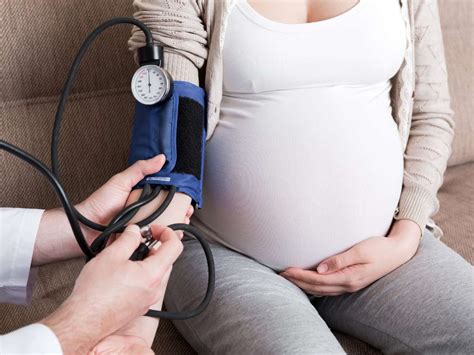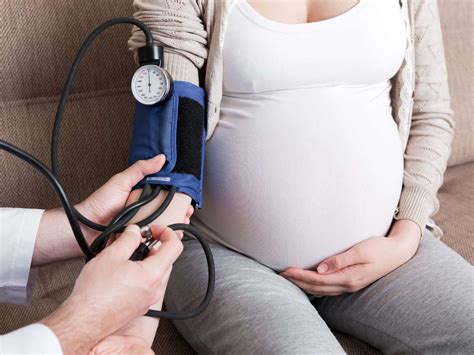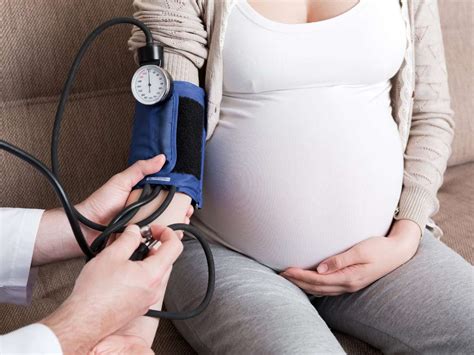Intro
Manage pregnancy blood pressure with our comprehensive guide, covering hypertension, preeclampsia, and gestational diabetes, to ensure a healthy pregnancy and baby.
Pregnancy is a life-changing experience that brings immense joy and excitement, but it also comes with its own set of challenges and health concerns. One of the critical aspects of pregnancy care is monitoring blood pressure, as it plays a vital role in ensuring the health and well-being of both the mother and the baby. High blood pressure during pregnancy can lead to complications, such as preeclampsia, which can have severe consequences if left untreated. Therefore, it is essential to understand the importance of blood pressure monitoring during pregnancy and take necessary steps to maintain a healthy blood pressure level.
Blood pressure is a measure of the force of blood against the walls of arteries, and it is typically measured in millimeters of mercury (mmHg). A normal blood pressure reading is usually around 120/80 mmHg, but it can vary from person to person. During pregnancy, blood pressure is closely monitored to detect any changes or abnormalities that may indicate a potential health risk. Women with pre-existing hypertension or those who develop high blood pressure during pregnancy are at a higher risk of complications, and their blood pressure is closely monitored to prevent any adverse effects on the mother and the baby.
The importance of blood pressure monitoring during pregnancy cannot be overstated. High blood pressure can lead to preeclampsia, a condition characterized by high blood pressure and damage to organs such as the kidneys and liver. Preeclampsia can cause premature birth, low birth weight, and even stillbirth if left untreated. Moreover, high blood pressure during pregnancy can also increase the risk of cardiovascular disease, kidney disease, and stroke in the mother. Therefore, it is crucial to maintain a healthy blood pressure level throughout pregnancy to ensure the best possible outcomes for both the mother and the baby.
Understanding Blood Pressure During Pregnancy

Blood pressure during pregnancy is influenced by various factors, including hormonal changes, blood volume, and vascular resistance. During the first trimester, blood pressure tends to decrease due to the relaxation of blood vessels, which can lead to a decrease in blood pressure. However, as the pregnancy progresses, blood pressure can increase due to the growing uterus and the increased blood volume. Women with pre-existing hypertension or those who develop high blood pressure during pregnancy are at a higher risk of complications, and their blood pressure is closely monitored to prevent any adverse effects on the mother and the baby.
Factors That Influence Blood Pressure During Pregnancy
Several factors can influence blood pressure during pregnancy, including: * Pre-existing hypertension * Family history of hypertension * Obesity * Age (women over 35 years) * Multiple pregnancies * History of preeclampsia * Kidney disease * DiabetesThese factors can increase the risk of high blood pressure during pregnancy, and women with these risk factors are closely monitored to prevent any complications.
Monitoring Blood Pressure During Pregnancy

Monitoring blood pressure during pregnancy is crucial to detect any changes or abnormalities that may indicate a potential health risk. Blood pressure is typically measured at each prenatal visit, and women with high blood pressure or those at risk of developing high blood pressure are closely monitored. The American College of Obstetricians and Gynecologists (ACOG) recommends the following blood pressure monitoring guidelines during pregnancy:
- Women with normal blood pressure: blood pressure should be measured at each prenatal visit
- Women with high blood pressure: blood pressure should be measured more frequently, ideally daily
- Women with preeclampsia: blood pressure should be measured frequently, ideally every 4-6 hours
How to Monitor Blood Pressure at Home
Women with high blood pressure or those at risk of developing high blood pressure can monitor their blood pressure at home using a blood pressure monitor. Here are some tips for monitoring blood pressure at home: * Use a validated blood pressure monitor * Take multiple readings at different times of the day * Sit comfortably with your back supported and your feet on the floor * Avoid smoking, exercise, and caffeine for at least 30 minutes before measuring blood pressure * Record your readings and share them with your healthcare providerTreating High Blood Pressure During Pregnancy

Treating high blood pressure during pregnancy is crucial to prevent complications and ensure the best possible outcomes for both the mother and the baby. The treatment of high blood pressure during pregnancy depends on the severity of the condition and the gestational age. Women with mild high blood pressure may be monitored closely, while those with severe high blood pressure may require hospitalization and medication.
Medications for High Blood Pressure During Pregnancy
Several medications are available to treat high blood pressure during pregnancy, including: * Methyldopa * Nifedipine * Labetalol * HydralazineThese medications can help lower blood pressure and prevent complications, but they should only be used under the guidance of a healthcare provider.
Preventing High Blood Pressure During Pregnancy

Preventing high blood pressure during pregnancy is crucial to ensure the best possible outcomes for both the mother and the baby. Here are some tips for preventing high blood pressure during pregnancy:
- Maintain a healthy weight
- Exercise regularly
- Eat a balanced diet
- Avoid smoking and alcohol
- Manage stress
- Get enough sleep
These lifestyle changes can help prevent high blood pressure during pregnancy and reduce the risk of complications.
Benefits of a Healthy Lifestyle During Pregnancy
A healthy lifestyle during pregnancy can have numerous benefits, including: * Reduced risk of high blood pressure * Reduced risk of gestational diabetes * Reduced risk of preeclampsia * Improved fetal health * Improved maternal healthA healthy lifestyle during pregnancy can also reduce the risk of complications and ensure the best possible outcomes for both the mother and the baby.
What is the normal blood pressure range during pregnancy?
+A normal blood pressure reading during pregnancy is usually around 120/80 mmHg, but it can vary from person to person.
What are the risks of high blood pressure during pregnancy?
+High blood pressure during pregnancy can lead to complications, such as preeclampsia, premature birth, and low birth weight.
How can I monitor my blood pressure at home during pregnancy?
+You can monitor your blood pressure at home using a validated blood pressure monitor, taking multiple readings at different times of the day, and recording your readings to share with your healthcare provider.
In summary, monitoring blood pressure during pregnancy is crucial to detect any changes or abnormalities that may indicate a potential health risk. Women with high blood pressure or those at risk of developing high blood pressure should be closely monitored, and lifestyle changes, such as maintaining a healthy weight, exercising regularly, and eating a balanced diet, can help prevent high blood pressure during pregnancy. By understanding the importance of blood pressure monitoring during pregnancy and taking necessary steps to maintain a healthy blood pressure level, women can ensure the best possible outcomes for both themselves and their babies. We invite readers to share their experiences and ask questions in the comments section below, and to share this article with others who may benefit from this information.
